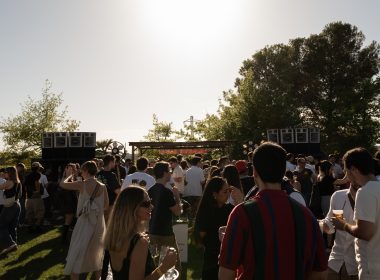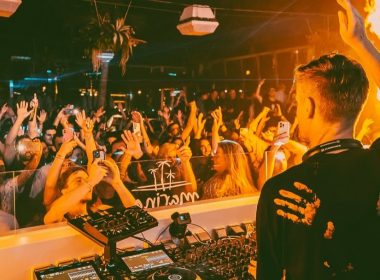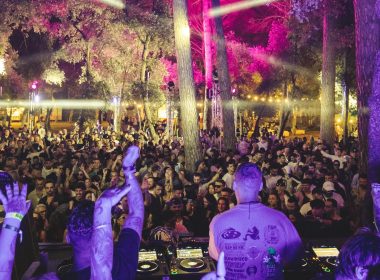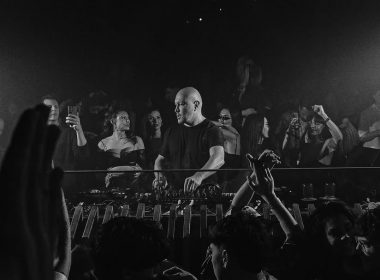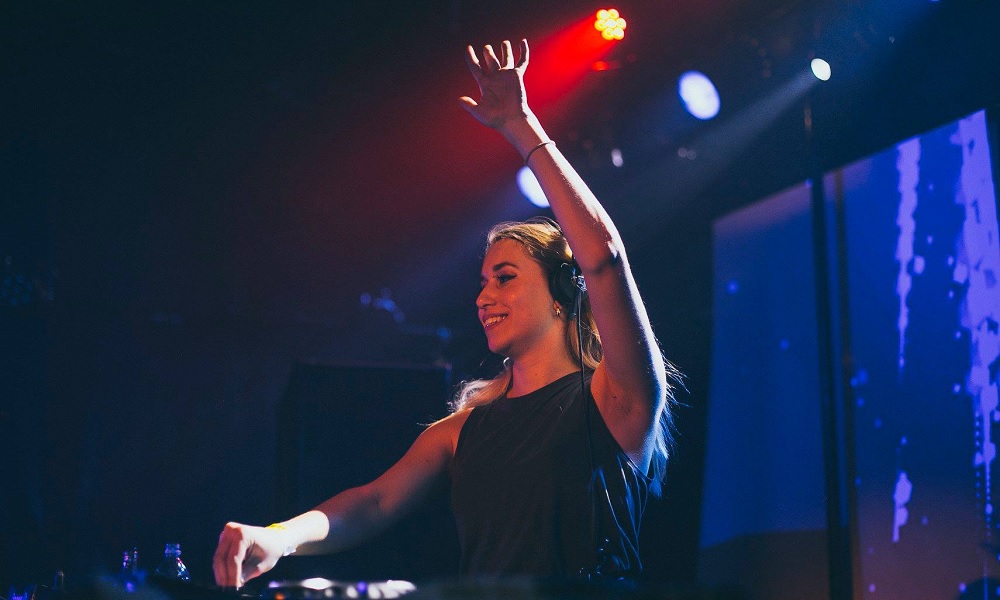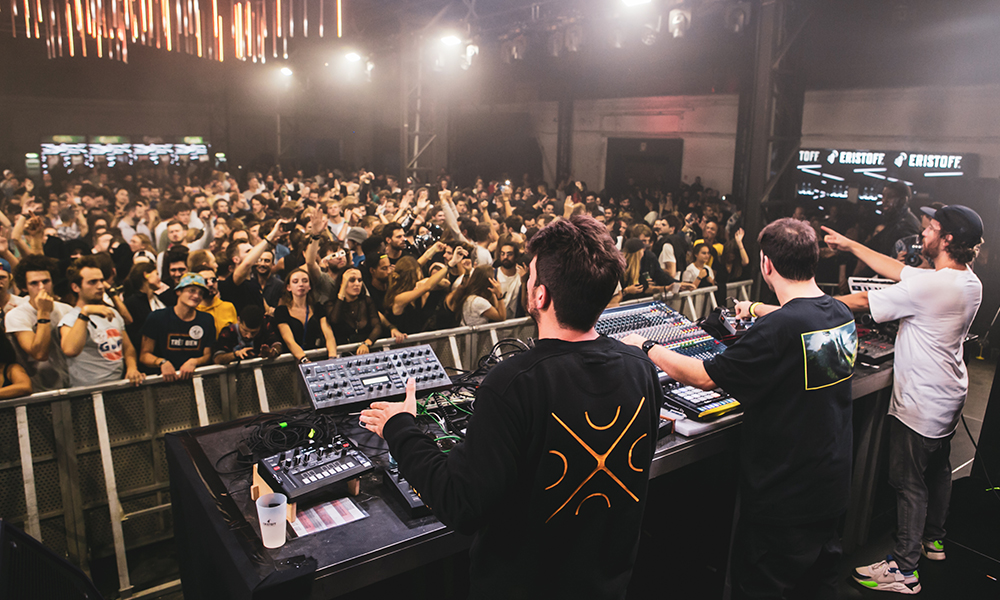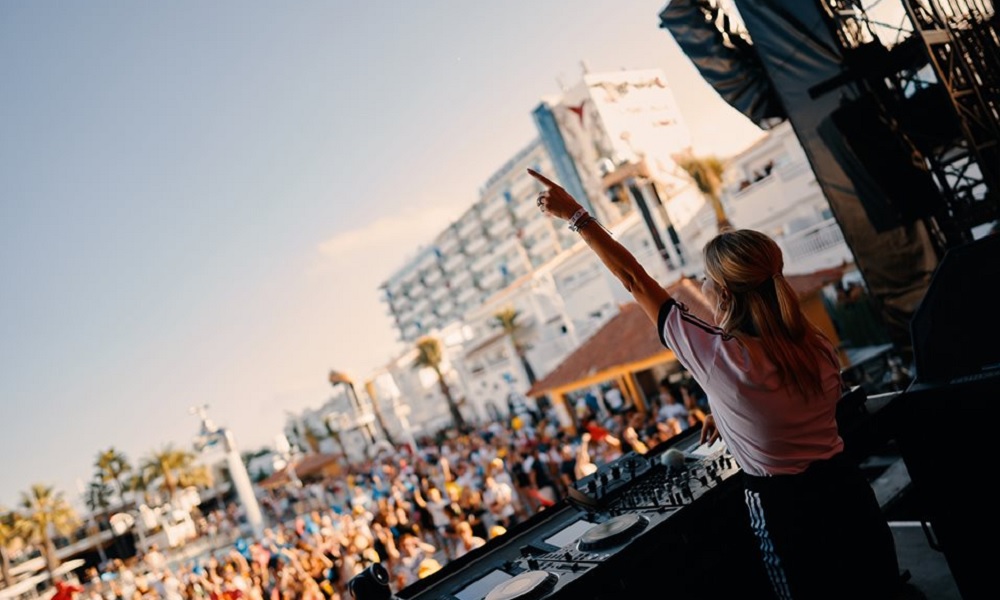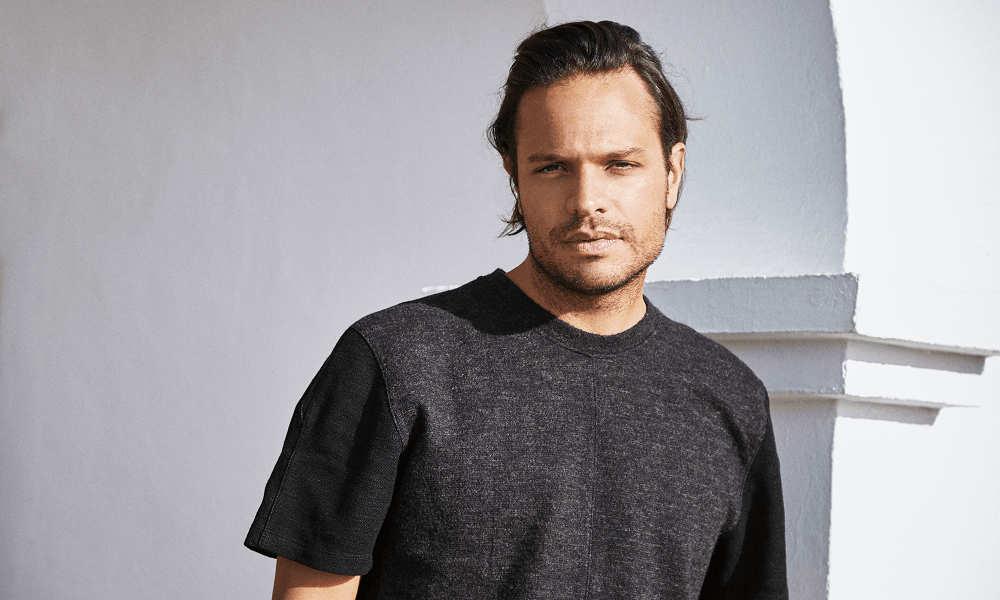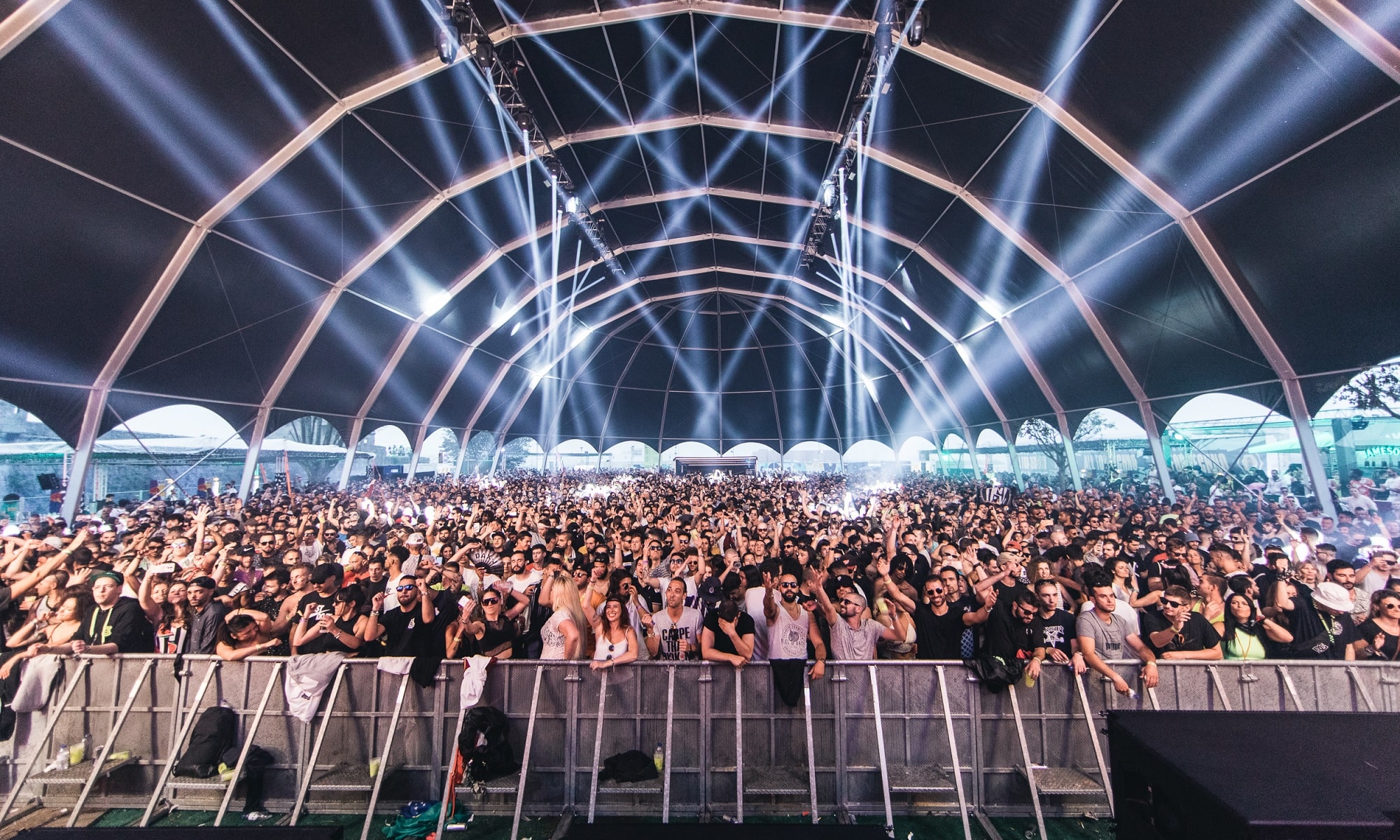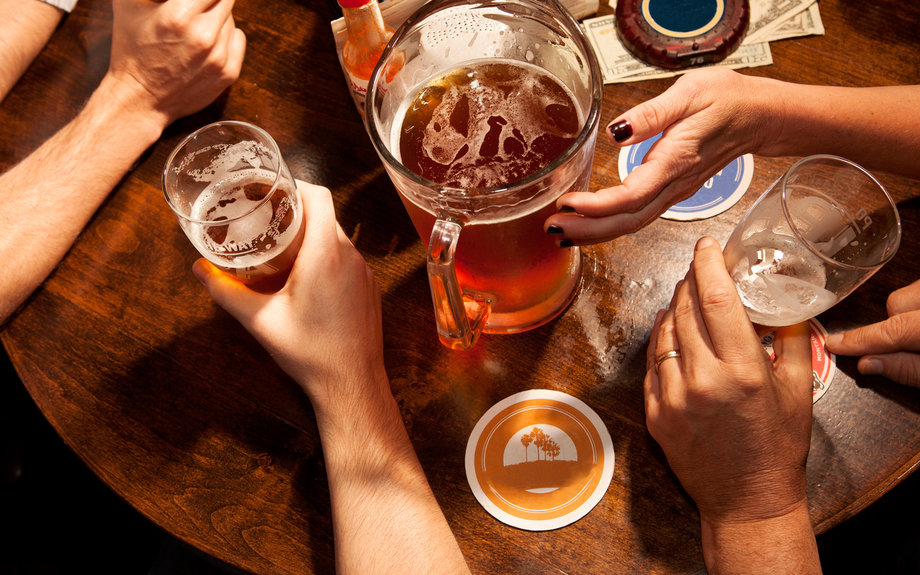Thinking about Slovenian electronic music and not visualizing Umek or Valentino Kanzyani is complicated. They are the two great exponents of the scene of this Central European country. They were the ones who laid the foundations, who started a path that, today, many young Slovenians continue with the dream of becoming as big as they are. One of the best examples is GLIA, alias of Maja Ceh. We are talking about a young producer, DJ and sound engineer born in Slovenska Bistrica, a small village with a few thousand inhabitants and surrounded by hills and vineyards. With only 24 years old, she can already say that she has performed in some of the best clubs in Europe. The best example is Griessmühle in Berlin, a city where, like so many other DJs on the scene, she has recently lived. GLIA was one of the first guests in our Xceed Rooftop Series. Now, we have an opportunity to dig deeper into her story.
Hi GLIA, it’s a pleasure to have you here with us again. I feel curious about where that aka comes from!
Hello! The pleasure is absolutely mine! Look: years ago, I was sitting behind the school desk in high-school during a biology class. We were learning about brains and the teacher explained that GLIA cells provide support and protection for neurons. I liked how the letters sounded and thought to name my next pet like that. But, instead of that, I ditched my ludicrous DJ name back then for GLIA.
Can you introduce yourself to Xceed Night Mag readers?
I believe I am a creative and expressive person. That’s why there are multiple ways I feel I can express myself. And one of them is absolutely through music. I never wanted to limit myself just to one thing, so it’s always been hard to define what GLIA includes. In a sentence, GLIA is a part of me focused on creating contemporary electronic music and DJing. As an audio engineer and audio producer, I have a conflict of how much should I include GLIA to other audio-related things that I do, like record and mix bands or singers, lecturing and tutoring people, or getting involved into product design. However, I always come up with ideas on how to expand the concept of GLIA in collaboration with other artists focused on visual aspects and similar.
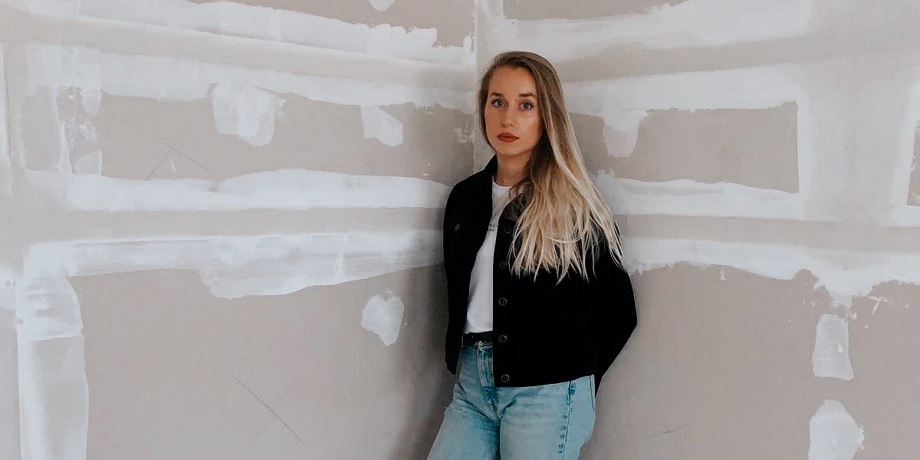
You are born and based in Slovenia. When we think about DJs from there, we automatically think about Umek or Valentino Kanzyani, two not very young artists… Which are your thoughts about them?
I give all my respect to artists like Umek or Valentino Kanzyani, even to artists that are younger and may not be as famous. I think what they have created is admirable. People like Umek influenced me as a child a lot -we call him “fotr”, which means “the father”. I remember watching his music videos on TV back in the days for songs like “Posing As Me” or “Carbon Occasions” and it absolutely rocked my world as a teenager. Actually, my first proper rave was with Umek and Carl Cox playing. It was a charity event in Ljubljana and back then this kind of music really made an impression on me. I admired them because they are some of the people who influenced the scene in Slovenia and managed to transform their underground brand into a mainstream one. Now, even people who have no connection to electronic music know who Umek is.
What about the current status of your national scene? Are there, just like you, more young talent which could start doing important things around Europe very soon?
When I look at our national scene, I see a lot of potential artists, but what seems to be the problem, in my modest opinion, is fear in the sense that collaboration may be quite hard due to the small market and its saturation. The competition gets quite hard, especially because “everyone knows everyone”, so you have to “know someone” in order to start. But I really appreciate our local scene regardless of that. Even though we are a tiny country, we enjoy a scene with almost everything from extremely underground small parties in abandoned places to big, fancy, shiny, international names coming to play. One of the saddest moments on our local scene this year was the closing of an abandoned bike factory called Rog. It has been so far the best place where I ever played. The government shut it down because they don’t see the importance of those kind of places to the alternative-cultural scene in the country.
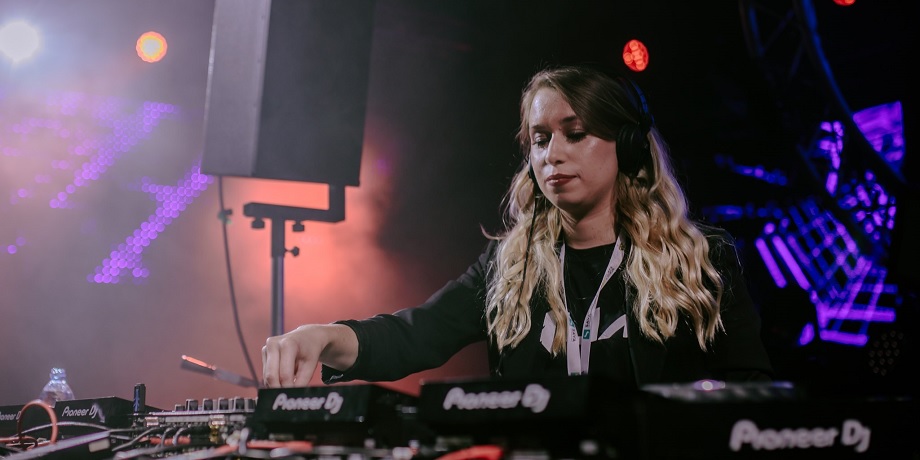
You are a DJ, but you also produce your own music. Is GLIA more a DJ or a producer?
I feel this one is hard to answer, If I judge by knowledge, GLIA is definitely more a producer. However, if I judge by what has been going on so far, it has definitely been more DJ related things. I also feel the mental and creative state I am in when producing music is completely the opposite of the creative process of DJing. When I am producing music, it’s like I am completely selfishly in my own world, focused on sounds, creating textures and ambients. When I DJ, the crowd, space and time is always a component on which I don’t have to think about when producing. DJing is just like a cherry on top and being able to play to people that I actually enjoy and rocks my world on the dancefloor is always a delight.
You used to live in Berlin some time ago. Why do you think you are so many, the producers/DJs who have lived there?
I find Berlin as the most creative, limitless city I have ever visited. I feel like it can be extremely grotesque and depressing. However, I think that most good art comes from that kind of feelings. Usually, when people are euphorically happy, they cannot offer a lot of art. Berlin has such a specific energy because of its history and the many cultures existing there. It just offers so much inspiration in any art. Everything from graffiti, film premiers, high fashion runaways, contemporary paintings or hard techno parties. Everyone can find something for themselves there. You also get so inspired going to so many amazing parties. You feel like you want to be a part of it.
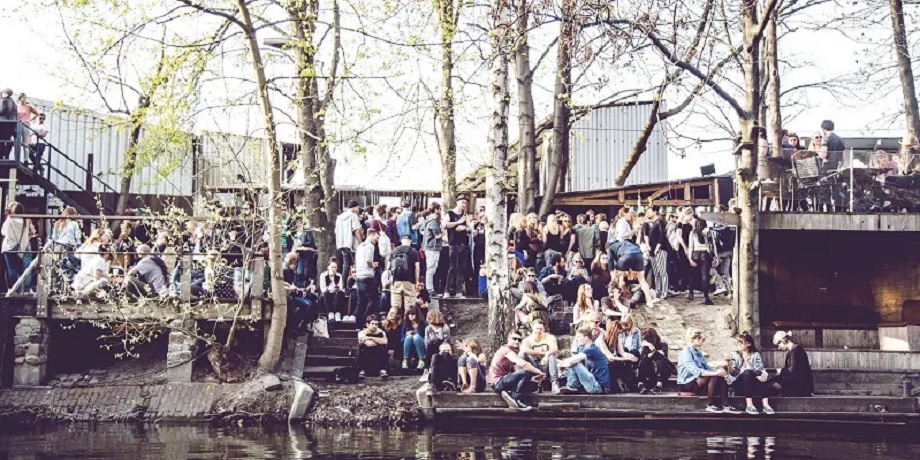
What did Berlin offer to you that Slovenia couldn’t offer?
Primarily, I moved to Berlin to finish my studies. Most of what Berlin gave and still gives me when I go there is the amount of freedom for self-expression. Berlin has such unique energy and I love how you can get lost there for days forgetting about the rest of the world. It’s a town that offered me something no other place ever has offered me so far. I think because of living there, I developed my personality in a bolder way, especially when it comes to experimenting with your ideas and challenging yourself on various levels. What I also absolutely adore to the bottom of my heart in Berlin is the opportunity to get lost in the chaos of the city. Berlin is a big town with things happening every day of the week, and being able to go around the town completely alone and dance to the music that is a big part of me made me fall in love with the music alone and over and over again while getting to know myself so much more. It offered me as well as different perspectives on life and humanity and offered me new values, which I identify with.
Could we say that the GLIA we know and dance to nowadays wouldn’t be possible without Berlin’s influences?
I think this is undeniably true. I absolutely believe that you can also hear it in my sets: the sound of my sets is pretty ‘hard squared’. What I find the funniest is how much I actually learned about music production and DJing while going to clubs and just listening and dancing to the music. So, my goal is to always bring those feelings back to the people when they are on my gigs. And, if I can do that with my own music, it’s even better. What I mostly feel Berlin gave me is self-definition, not just on a personal level, but also genre/playing style-wise.
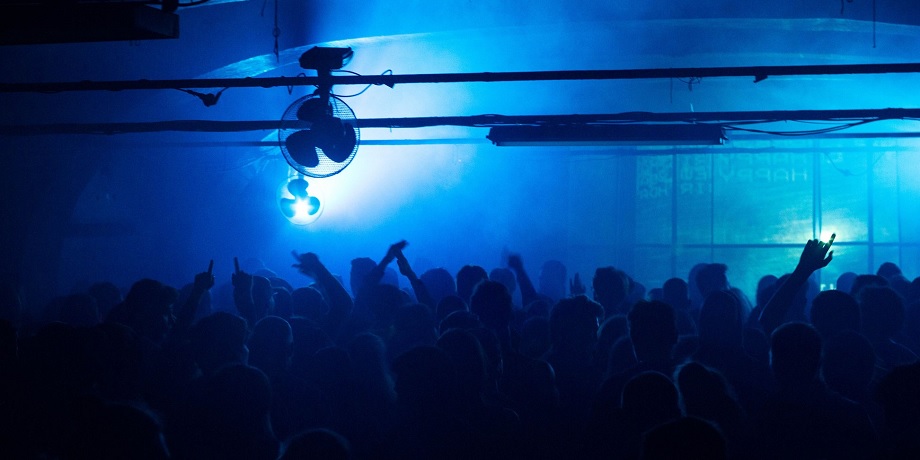
What about your production methods there in Slovenia? Are the same ones you were using in Berlin? Is it more difficult to set a proper studio in your homeland?
To be completely honest, moving back to Slovenia gave me more options to produce music, due to the fact that I was able to save more money for buying better and new audio equipment. So, I set up a small studio with two Adam monitors, my analogue Korg synthesizer, two other keyboards, some microphones and guitar pedals, and then some DJ equipment, which gives me the option to work independently. My production techniques have changed because I upgraded my studio gear. This means now I have almost entirely an analogue approach.
Could you go a bit further explaining that musical approach?
I could talk about this for days, but it all starts with creating raw sounds, original sounds. These are either recorded (field recording or vocal recording) or synthesized with my analogue synthesizer. That might be then processed with an analogue distortion or reverb and recorded back to the computer.
This is, in a sentence, how the creative process starts. I try to be as structured as possible, and drums are usually the beginning of my tune. I try to create most of my sounds with my own gear, adding different guitar effects to achieve the desired sound on percussions. Then, it’s always the baseline or the lead synth, or maybe even a vocal, to get a red line of the track. I always include some recorded vocals, even if that means using and manipulating them to become some percussive elements in the track.
Sometimes, I would be outside in town or travelling or just being in social situations, and I would ‘secretly’ record just to use it later in a track. Of course, I’d make it unrecognizable, but the goal is to create some mesmerizing, hypnotic sounds or vocal effects electronic music has. My goal is to create as many original sounds as I can, and I recently have been given a lecture about it at one of the music production schools based in Ljubljana. You want to develop your own sound. Even if it’s a longer discovery and excellence process, I believe it’s really important.
At this point, I believe I have also really mastered the workflow of using the analogue gear. I really disagree or even oppose those who only use already existing samples or even worse loops on most of their tracks. I feel, and I’d say, that is not music production, but more like a remix. Downloading something illegally from the internet, and then just throwing it in your DAWs with no logical organization and consistency is something I’d not call music production or art. That’s kind of why people think creating contemporary electronic music is just like pressing one (create) button and baam: congrats, you are a producer.
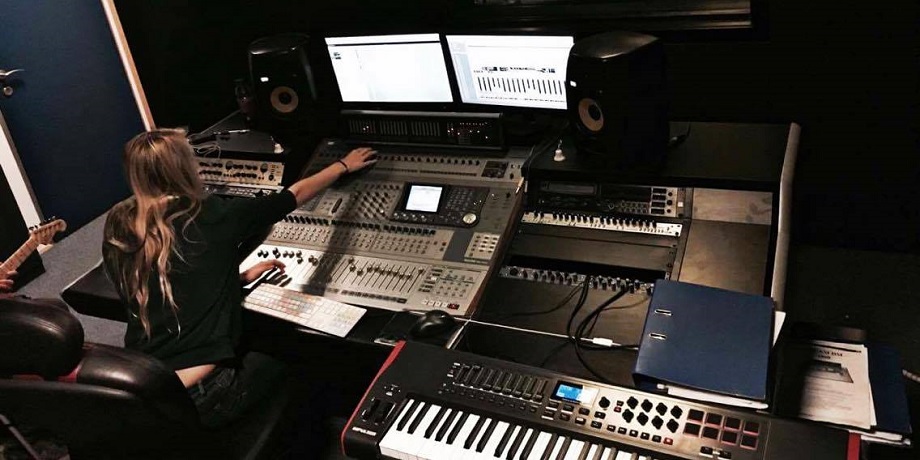
You don’t only create your own sounds, but you also built some new gear this last year…
Yes!! I have been engaging in product design for the last two years. I got really into it in Berlin. I worked with some prototypes and I researched some possibilities with mentorships from Microsoft and similar. And, until now, I have never found myself behind the actual creation/engineering process as this year. I participated in an analogue-synth-building workshop and I managed to build a modular synthesizer with just two basic oscillators and an amplifier. I built it inside an old wine box, painted it and then added plastic buttons to make it look less rigid. My next plan is to add a filter and a sequencer, so the sound will actually become more shaped and manageable. Right now, this baby is really wild.
How are both the music you produce and the music you play?
I am not that consistent when it comes to connecting both, which makes me annoyed because a lot of times my own production doesn’t fit my sets. But I will get there eventually! A lot of times, the music I would create sounds super happy and melodic in comparison to what I would play. I guess it is just the consequence of my emotions: when I make music, I’m generally happy, and when I play it, I want to throw the roof down or create some intense ‘basement like’ experience.
You have played in several cities around Europe. What were your biggest experiences?
I feel like almost anywhere I have played in the last year or so was somehow satisfying and every time I go abroad it is a super exciting experience. Playing abroad for me started a few years ago, already like being a festival resident in a popular Croatian clubbing destination like Zrće, also in Valenica, and then, of course, in Berlin. There, I’ve been extremely happy to play at Griessmühle this year. I played with some bigger names like Insolate, Coyu, Marko Nastić, Clara Cuvé, David Morales, Reinier Zonneveld, Fernanda Martins, Metodi Hristov and similar. This summer, I was also really busy with festivals: I also played on the main stage of the biggest electronic music festival in Slovenia (StellarBeat), where I probably had the biggest crowd so far. And a nice experience was also playing in Dubrovnik (Croatia) on Deepnd Records label night in the old town – where they filmed Game of Thrones. A lot of interesting and satisfying things keep popping out regularly, and I highly appreciate I have a crowd that supports me in different places.
Which are GLIA’s expectations from now on? Any plans already in your agenda?
I still have some gigs on the horizon. However, I feel like I am coming to a phase where I mostly want to focus on creating music. I’ve been leaning quite some time towards vinyl now. I’ve been collecting them in recent years, starting to swim in these waters. When talking about the next months, I will release new EPs this autumn and winter. And more importantly, I will change my location (again), which will probably be the most drastic change.
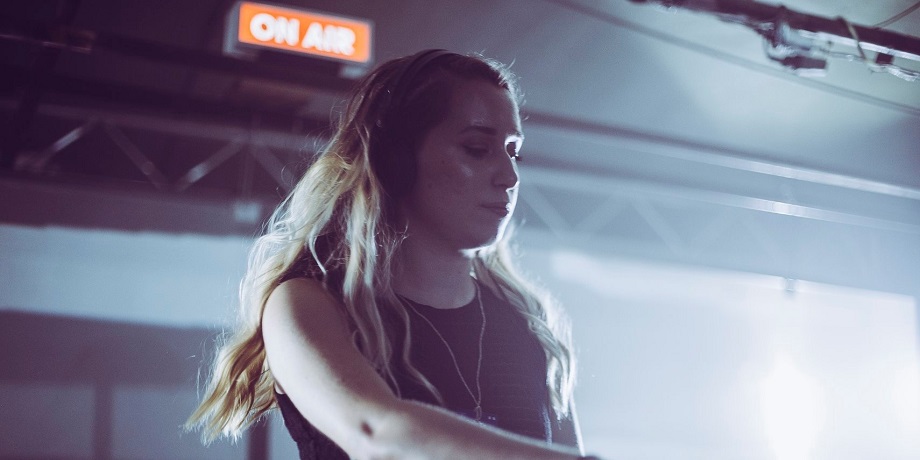
Which is your biggest dream as a DJ/producer?
It’s always hard to talk about such things, because you want to stay humble and modest. You know… sharing the “big dreams” out loud is always scary. Of course, there are goals about where I want to play or which record labels I’d want to sign. Generally, it’s just coming to a point of desired quality, and then sharing that with people who would and have been enjoying my music and my gigs. I want to create music that evokes something in people and makes them feel something, even if it means making them feel euphoric or angry. I also want to combine music with different types of art and collaborate with other artists that I share values with. Like creating dope visuals or interesting cover arts, short movies and similar.
Umek, Valentino Kanzyani, and no more big names getting famous. Are you one of the biggest hopes of your country’s electronic scene?
If I compare myself to Umek or Valentino Kanzyani I have such a long road ahead. When only talking about the years they have already invested in their careers and the knowledge they have, I simply wouldn’t dare to compare myself. And honestly, I don’t like to compare myself with other artists too much I feel like each of us is quite in their own genre, and I feel there are many good artists on our local scene as well who are better in some ways than me. I think it’s highly important to create your own sound and your own scene and I feel that is one of the core ingredients – and I believe they have definitely created that.
(Cover Image: © Janez Klenovsek)



